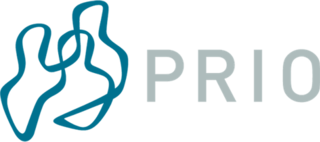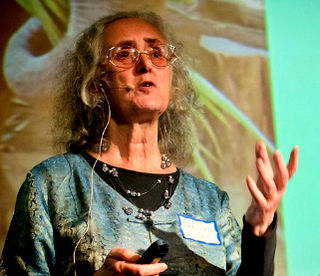
The Union of International Associations (UIA) is a non-profit non-governmental research institute and documentation center based in Brussels, Belgium, and operating under United Nations mandate. It was founded in 1907 under the name Central Office of International Associations by Henri La Fontaine, the 1913 Nobel Peace Prize laureate, and Paul Otlet, a founding father of what is now called information science.

World Brain is a collection of essays and addresses by the English science fiction pioneer, social reformer, evolutionary biologist and historian H. G. Wells, dating from the period of 1936–1938. Throughout the book, Wells describes his vision of the World Brain: a new, free, synthetic, authoritative, permanent "World Encyclopaedia" that could help world citizens make the best use of universal information resources and make the best contribution to world peace.

The Club of Rome is a nonprofit, informal organization of intellectuals and business leaders whose goal is a critical discussion of pressing global issues. The Club of Rome was founded in 1968 at Accademia dei Lincei in Rome, Italy. It consists of one hundred full members selected from current and former heads of state and government, UN administrators, high-level politicians and government officials, diplomats, scientists, economists, and business leaders from around the globe. It stimulated considerable public attention in 1972 with the first report to the Club of Rome, The Limits to Growth. Since 1 July 2008, the organization has been based in Winterthur, Switzerland.
The Emergency Committee of Atomic Scientists (ECAS) was founded by Albert Einstein and Leó Szilárd in May, 1946, primarily as a fundraising and policy-making agency. Its aims were to warn the public of the dangers associated with the development of nuclear weapons, promote the peaceful use of nuclear energy, and ultimately work towards world peace, which was seen as the only way that nuclear weapons would not be used again.

Johan Vincent Galtung was a Norwegian sociologist and the principal founder of the discipline of peace and conflict studies. He was the main founder of the Peace Research Institute Oslo (PRIO) in 1959 and served as its first director until 1970. He also established the Journal of Peace Research in 1964.

Project A119, also known as A Study of Lunar Research Flights, was a top-secret plan developed in 1958 by the United States Air Force. The aim of the project was to detonate a nuclear bomb on the Moon, which would help in answering some of the mysteries in planetary astronomy and astrogeology. If the explosive device detonated on the surface, and not in a lunar crater, the flash of explosive light would have been faintly visible to people on Earth with their naked eye. This was meant as a show of force resulting in a possible boosting of domestic morale in the capabilities of the United States, a boost that was needed after the Soviet Union took an early lead in the Space Race.

The Peace Research Institute Oslo is a private research institution in peace and conflict studies, based in Oslo, Norway, with around 100 employees. It was founded in 1959 by a group of Norwegian researchers led by Johan Galtung, who was also the institute's first director (1959–1969). It publishes the Journal of Peace Research, also founded by Johan Galtung.

Peace and conflict studies or conflict analysis and resolution is a social science field that identifies and analyzes violent and nonviolent behaviors as well as the structural mechanisms attending conflicts, with a view towards understanding those processes which lead to a more desirable human condition. A variation on this, peace studies (irenology), is an interdisciplinary effort aiming at the prevention, de-escalation, and solution of conflicts by peaceful means, thereby seeking "victory" for all parties involved in the conflict.
The International Congress Calendar is a calendar of events organized by non-profit international organizations, mainly those organizations which are included in the Yearbook of International Organizations. It has been published since 1960 by the Union of International Associations (UIA) and includes over 425,000 meetings. Over 15,000 new meetings are included every year.

Patrick Wolrige-Gordon, was a Scottish Conservative and Unionist Party politician.

Josué de Castro, born Josué Apolônio de Castro, was a Brazilian physician, nutritionist, geographer, writer, public administrator, and activist against world hunger.
The book International Encyclopedia of Systems and Cybernetics is an authoritative encyclopedia for systems theory, cybernetics, the complex systems science, which covers both theories and applications in areas as engineering, biology, medicine and social sciences. This book first published in 1997 aimed to give an overview over more than 40 years developments in the field of Systems and Cybernetics.

Cornelis "Cees" Berkhouwer was a Dutch politician.
Henry Charles Usborne was a British Labour Party politician and peace activist who defected to the Liberal Party.

Anthony Judge, is mainly known for his career at the Union of International Associations (UIA), where he has been Director of Communications and Research, as well as Assistant Secretary-General. He was responsible at the UIA for the development of interlinked databases and for publications based on those databases, mainly the Encyclopedia of World Problems and Human Potential, the Yearbook of International Organizations, and the International Congress Calendar. Judge has also personally authored a collection of over 1,600 documents of relevance to governance and strategy-making. All these papers are freely available on his personal website Laetus in Praesens. Now retired from the UIA, he is continuing his research within the context of an initiative called Union of Imaginable Associations.

Pesticide Action Network (PAN) is an international coalition of more than 600 NGOs in 90 countries which advocates for less hazardous alternatives to pesticides. It was founded in May 1982 with its first meeting in Penang, Malaysia.

The Union Internationale des Avocats (UIA) or International Association of Lawyers is an international non-governmental organisation, created in 1927, that brings together more than 2,200 legal professionals from all over the world.
Diwan Chaman Lall was an Indian politician and diplomat who served as a Member of the Rajya Sabha.

Sophia Wadia, née Sophia Camacho, was a Colombian-born naturalized Indian theosophist, littérateur, the founder of PEN All India Centre and the founder editor of its journal, The Indian PEN. She also cofounded The Indian Institute of World Culture, Bengaluru and the Asian Book Trust, Mumbai. The Government of India honoured Wadia in 1960, with the award of Padma Shri, the fourth highest Indian civilian award for her services to the nation.

Marilyn Mehlmann is a Swedish environmentalist and educator.
















